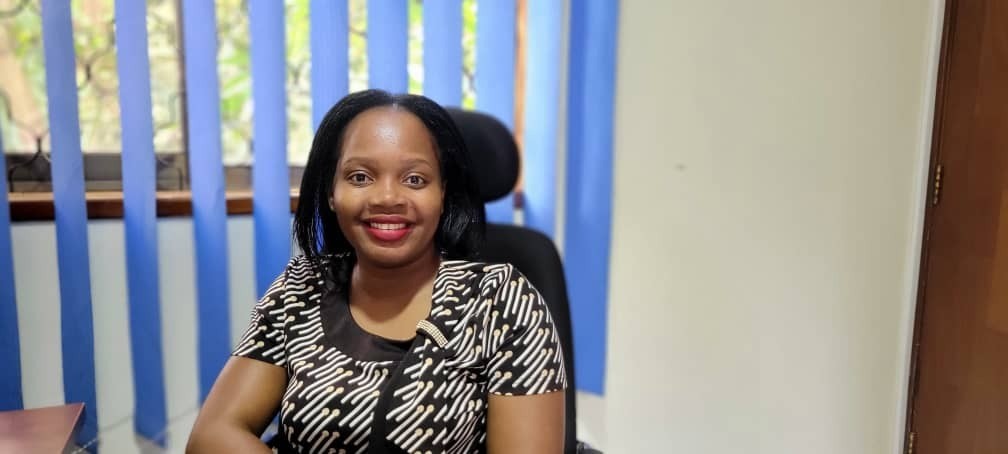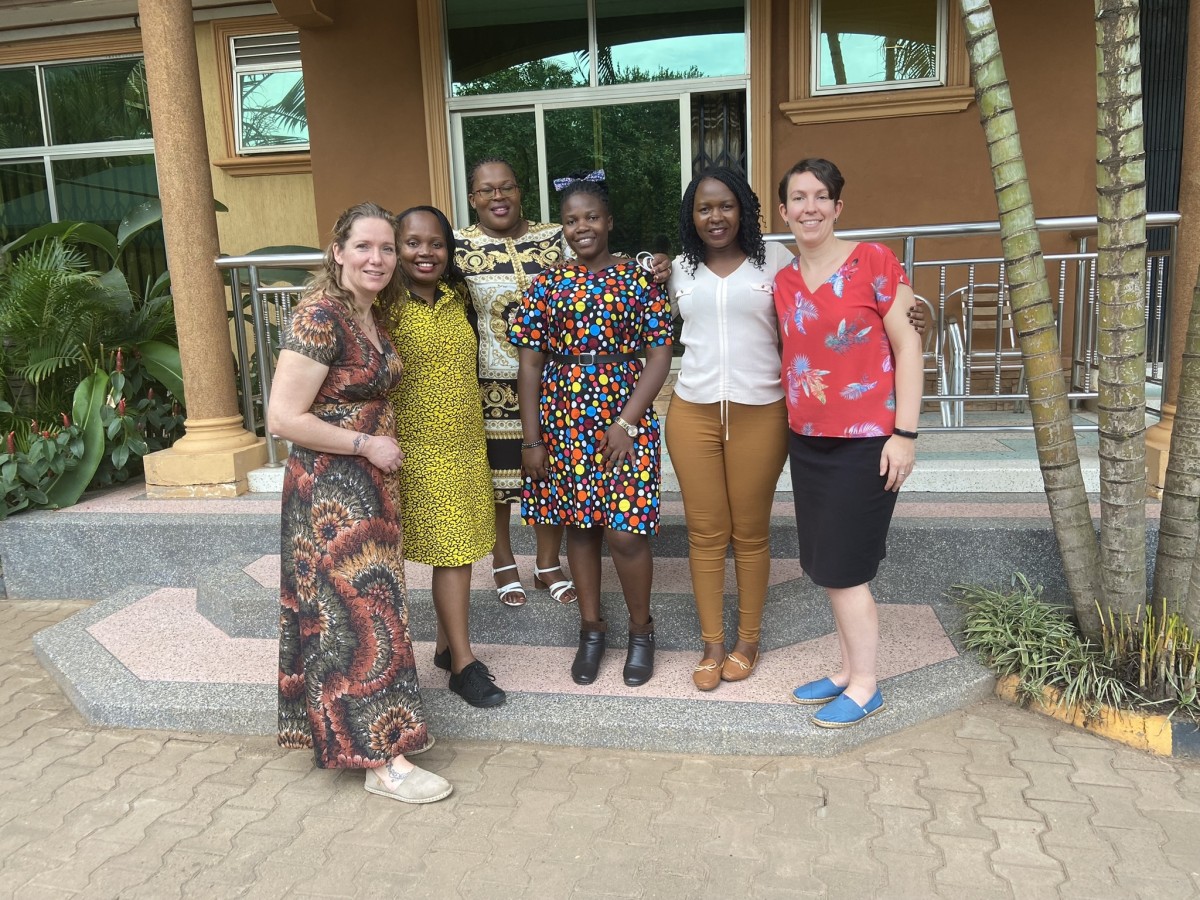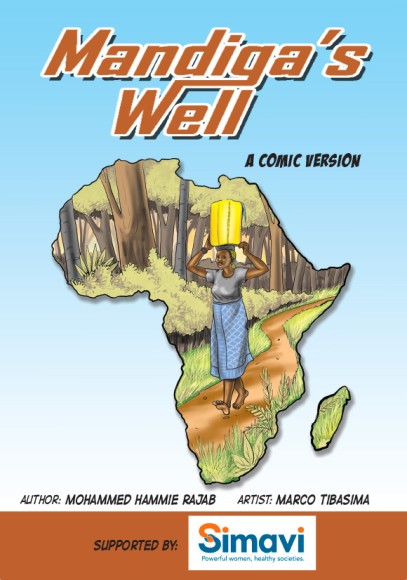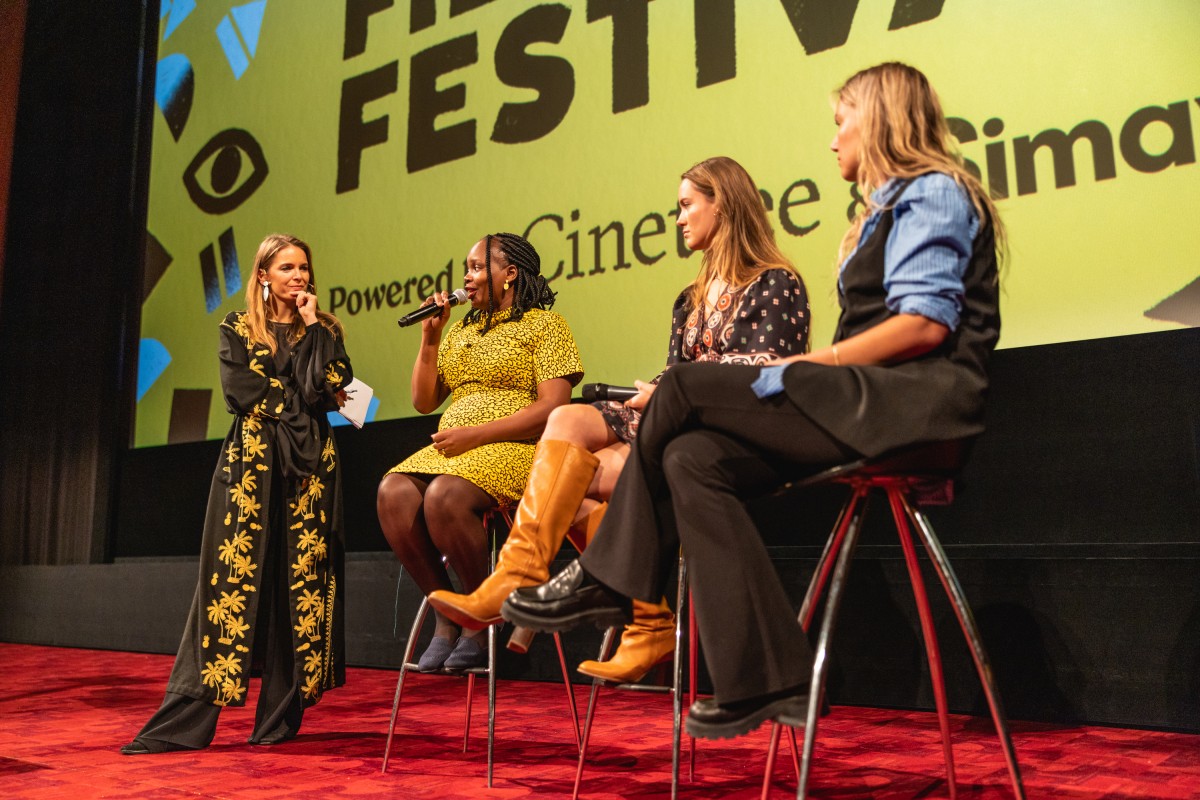I am Simavi - Kazooba Diana: ‘Simavi implementing partners know better than any of us what people need.’
Diana Kazooba, Knowledge management and learning officer in Uganda
Text Lula Ahrens
Diana Kazooba has expertise in WASH, sexual reproductive health and creative storytelling for social change in Uganda and Tanzania. She is involved in the publications of Mohammed Hammie’s (comic) book Mandiga’s Well (2002) on the importance of women’s involvement in decision making for WASH, and the coordination of a menstrual health manual. ‘Simavi implementing partners know better than any of us what people need.’

Let’s start with the government manual for women and girls you have been working on. What exactly is it about, and who have been putting it together?
'The COVID 19 pandemic revealed that women and girls outside school in Moyo district lack the right knowledge on menstrual health. The project integrates sexual reproductive health rights, WASH and menstrual health. It includes WASH and sexual reproductive health topics, stigma issues and life skills such as negotiation, conflict management and making your own soap. We look at MH++ holistically, emphasising the shared responsibility of men, leaders, health workers and parents. It's a joint project in which The Ministry of Education and Sports, WASH alliance partners and Sexual Reproductive Health Rights Alliance (SRHR) partners collaborate, supported by Maastricht University and Nuffic.
What was the most challenging part of putting together the new manual?
'Aligning the manual to acceptable Ugandan norms and standards. With help from the Ministry of Education and Sports’ gender unit, we’ve finally reached a common ground on what words are acceptable to use and which aren’t. Abortion for example is an illegal practice in Uganda and therefore it cannot be discussed. So instead, we mention unwanted pregnancy. And you can’t discuss family planning or contraception methods, so you only talk about pregnancy prevention.'

Another key aspect of your work is storytelling. How would you summarise its importance?
'When people in the communities speak for themselves, it will be better felt and understood by the outside world, and it will reflect reality. That way you build connections, inclusion and support. Storytelling is a mover of mindsets. It can change lives and communities.'
How does the storyline of Mandiga’s Well by Tanzanian journalist Mohammed Hammie illustrate that point?
'Mandiga’s Well [available on Amazon] is based on a true story and has sparked a lively dialogue on the daily challenges and dangers rural Tanzanian women encounter while fetching water. After main character Mandiga barely escapes sexual assault on the way to the well outside her village, she breaks cultural taboos by confiding in an empowered woman with links to a local ngo.
She connects with her fellow ladies, most of whom share similar experiences. The women break their silence and inform local authorities. After an open dialogue with the entire community, the thugs are caught and a central water source is installed in the village which frees up time for the women to do productive work. This story shows you that the core problem you tackle is lack of information. Rather than just saying: I’m giving you a bore hole, you tackle a whole mindset. Mandiga’s Well is a story of broken taboos and female empowerment.'

What was your role in the publication of Hammie’s book?
'I peer reviewed Hammie’s book together with our Tanzanian partners (E-mac and CEMDO) and we translated it from Swahili to English. In collaboration with Hammie, we published a comic book for children which has been certified as official teaching material and is being read at dozens of Tanzanian schools. We believe that children can be agents of change, as they share what they’ve read at home.'
Would you call Mohammed Hammie a feminist?
'I would, but I also believe the feminist perspective has to change. In East Africa, men think of feminists as threatening women who are too empowered, who do not respect men and thus create a new power imbalance. Ideally, we should portray feminism – should we even call it that? - as a beautiful language that respects everybody, the way Hammie does. We need the men on board, we need the boys on board. We need everybody.'

What are some of your greatest achievements so far?
'I’ve built an empowered team that feels they can thrive at anything. Our local partners form Uganda and Tanzania do their own research, are involved in drawing up proposals and look for funds independently. They know better than any of us what people need, because they work with communities to find the best solutions. All I do is coordinate. My goal is to become a role model for shifting the power and climate justice.'
Are you actively involved in climate justice on behalf of Simavi?
'We’re aiming for a correlation of WASH and carbon credit financing through climate-friendly water treatment methods as opposed to boiling water by burning wood. It will be an economically sound business model, but it’s still in the preparatory phase. Privately, I run my own eco-friendly bee farm.'
Want to work with Simavi as a partner?
Do you want to work with Simavi as a partner? Have a look further on our website.


